Space
Sign up for our newsletter
We summarize the week's scientific breakthroughs every Thursday.
-
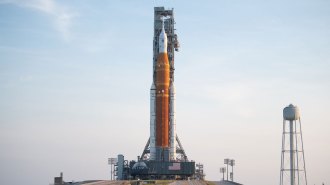 Space
SpaceNASA’s Artemis I mission sets the stage for our return to the moon
The launch will test many aspects of the rocket, capsule and spacesuits that will take astronauts back to the moon.
-
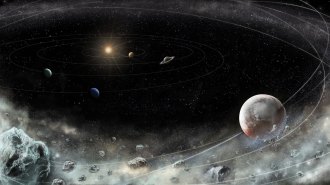 Astronomy
AstronomyThe discovery of the Kuiper Belt revamped our view of the solar system
Thirty years ago, astronomers found the Kuiper Belt, a region of space home to Pluto and other icy worlds that helped show how the solar system evolved.
-
 Earth
EarthNot one, but two asteroids might have slain the dinosaurs
A craterlike structure found off West Africa’s coast might have been formed by an asteroid impact around the same time the dinosaurs went extinct.
By Nikk Ogasa -
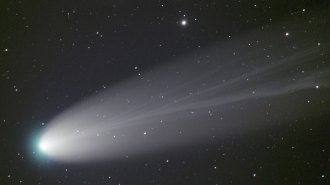 Planetary Science
Planetary ScienceOort cloud comets may spin themselves to death
How icy objects from the solar system’s fringe break up as they near the sun is a long-standing mystery. One astronomer now thinks he has an answer.
-
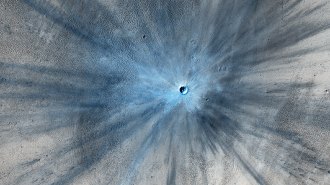 Planetary Science
Planetary ScienceAsteroid impacts might have created some of Mars’ sand
Roughly a quarter of the Red Planet’s sand is spherical bits of glass forged in violent impacts, new observations reveal.
-
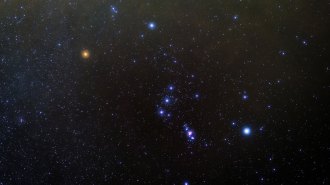 Space
SpaceOver time, Betelgeuse changed color. Now it’s also lost its rhythm
A recent upset to the star’s variability and ancient records that describe the red star as yellow tell a tale of a star that is no stranger to change.
-
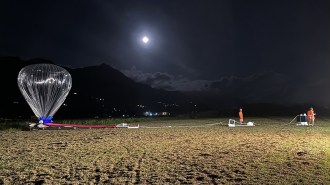 Space
SpaceHow balloons could one day detect quakes on Venus
A new study opens the door for future balloon-based missions to study the geology of other worlds.
By Freda Kreier -
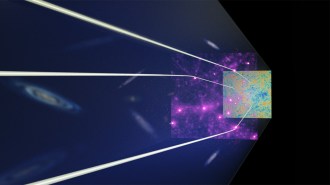 Cosmology
CosmologyScientists mapped dark matter around galaxies in the early universe
A technique used to reveal dark matter could also shed light on a disagreement about the clumpiness of matter in the cosmos.
-
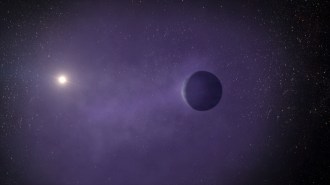 Astronomy
AstronomyMini-Neptunes may become super-Earths as the exoplanets lose their atmospheres
Starlight is eroding the atmospheres of a handful of gassy exoplanets that are a bit smaller than Neptune, gradually exposing the rocky cores within.
By Liz Kruesi -
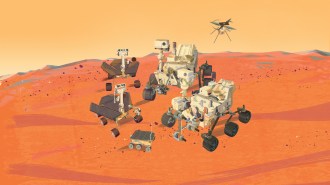 Space
SpaceHow Mars rovers have evolved in 25 years of exploring the Red Planet
Over 25 years, remotely controlled rovers have uncovered Mars’ watery history and continue to search for evidence that life once existed there.
-
 Cosmology
CosmologyThe Windchime experiment could use gravity to hunt for dark matter ‘wind’
Though decades away, the project hopes to use an array of ultrasensitive sensors as a “wind chime,” jostled by dark matter blowing past Earth.
-
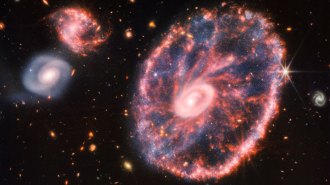 Astronomy
AstronomyA new James Webb telescope image reveals a galactic collision’s aftermath
Bright and dusty spokes of star formation connect the Cartwheel Galaxy’s inner and outer rings in a new image from NASA’s James Webb Space Telescope.